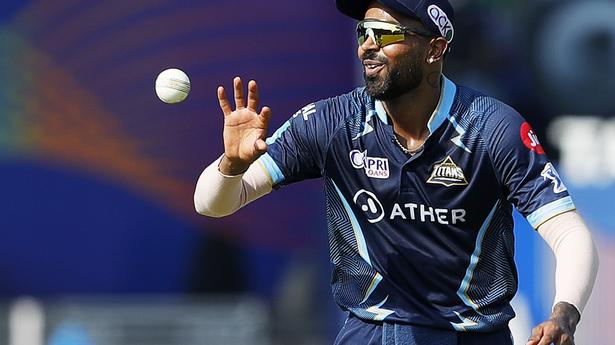Players know this better than anybody else: cricket is a game of failures. Even the great Don Bradman, who averaged 99.94 in a career of 52 Tests and 80 innings, made just 42 scores over 50. This means he ‘failed’ about half the time.
Yet, how you fail is important. Often you fail in the same manner in which you succeed, and while England have been given a lot of credit for their ‘Bazball’ style, the fact is that India, especially on the fourth day of the Edgbaston Test moved away from their own patented, older and successful ‘Shazball’ cricket.
The first is the entertaining style under England’s new coach Brendon McCullum (nicknamed ‘Baz’), and the second is the style inculcated by former coach Ravi Shastri. Partly this involves pressing home the advantage ruthlessly.
Flat and unkempt
On the fourth day, India looked flat, unkempt and threw wickets away when both runs and batting time were important. From 190 for four, they lost six wickets for 55 to bring England back into the game; an England whose captain had decided to bowl first because they could chase anything in the fourth innings.
England were magnificent. Joe Root’s century must rate as one of the finest, full of grace and power and mischief. And with Jonny Bairstow in such stunning form, they deserved to win. It might have been gracious of Bumrah to say that it had been a tough series and the 2-2 result was the fairest.
Yet one can’t shake off the feeling that India reneged on Shazball, and a captain leading for the first time was placed in a difficult position. Gone was the aggression and command of the Virat Kohli years — although the then captain did go over the top often — and the team is left with more questions than answers.
To their credit, India, leading 2-1 in the series, did not pack their batting hoping to merely draw at Edgbaston. Most Indian teams of the past would have done that on the bird-in-hand theory. India went for a 3-1 series win, arguing that if it didn’t pan out, it would not be the end of the world.
For that is the nature of Bazball or Shazball cricket — aggression by itself does not guarantee success, sometimes you lose in search of a win. Sometimes an element of uncertainty enters the picture. And you are not sure whether to keep attacking or hold back and let the other team do the running.
Left-handers to the fore
When India were in the dumps in the first innings, the two left-handers Rishabh Pant and Ravindra Jadeja swung into action with the former playing the kind of shots that give respectability to the T20 approach. But this was not merely hitting and hoping. Pant has a sound defence; he also has a wonderful eye and strong arms that do not worry about fielders on the fence because he knows he can clear them.
In this phase, England seemed bereft of ideas, their skipper confused and their fielding compounded the problem with overthrows. When England were chasing and the Yorkshiremen Joe Root and Bairstow were on top, it was India who looked ragged and out of it.
Clearly neither team has quite mastered this Bazball/Shazball business. Under pressure, both teams floundered in unfamiliar territory. In India’s case, there was more than one captain on the field, in England’s not even that!
In their second innings, India lost a chance to put the game beyond England. They lost the plot and suddenly looked like a team with not enough batsmen and playing at least one bowler short. On the fifth morning, the drooping shoulder syndrome so familiar in the past, came to haunt India again. However well Root and Bairstow batted, they were up against some poor bowling and a team that had given up.
In the absence of Rohit Sharma and K.L. Rahul, the batting struggled. The talented Shubhman Gill can expect a talking-to from his coach as can Shreyas Iyer. Hanuma Vihari may have played his last Test; he looked out of place at No.3.
Elephant in the room
And India will have to deal with the elephant in the room — Virat Kohli. Their next Test is in December, but will Kohli do what Cheteshwar Pujara did and play enough first class cricket in the meantime to rediscover his touch and form?
A defeat leaves a team with the kind of questions that remain hidden in the euphoria of a victory. And that is not a bad thing.
Both Bazball and Shazball come with a warning: be prepared for the occasional failure. Nothing symbolises this better than the batting of Rishabh Pant. He can win a game off his own bat – or flop spectacularly. The trick, when you fail again, as the playwright Samuel Beckett pointed out, is, “fail better”.





